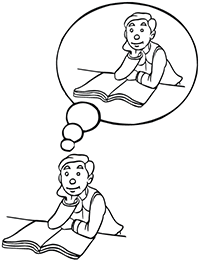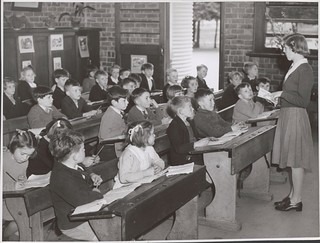To get you thinking about the topic of peer review, watch the video below where children explain the different kinds of people and problems you might encounter during a feedback session.
This video shows that cooperation with others is an integral part of the feedback process. When reviewing a peer’s work it is important to be sensitive and realistic in your comments. However, there is a difference between being mean and being critical. Giving critical feedback to someone is one of the best things you can do as it helps them to appreciate where they might have gone wrong, allowing them to make changes and improvements for the next time.
A good method of feedback often used in schools is the ‘two stars and a wish’ approach. This is where the child has to comment on two things that their peer has done well (the stars) and an area that needs to be improved (the wish). However, as a teacher, it is important to encourage the children to look at the success criteria of the task and not focus on things like whether or not the title is underlined. This is because the children will have focused the majority of their attention on the aims outlined in the success criteria therefore, it makes sense to give praise or constructive feedback on these points.
From my experience it is always nice to get a positive piece of feedback that someone has really thought about. It doesn’t make me feel great if someone has just stated the obvious e.g. “You copied the title correctly” but rather that they have really taken time to point out exactly what was good about a certain area and why. In the same way I look forward to receiving a critical piece of feedback as it makes me want to do better the next time and helps the same mistakes from happening in the future.
In my own experience, I have found that people find it difficult to be critical because they are worried about it coming across the wrong way. I would rather have someone honestly saying where I have made a mistake than telling me that my work is perfect- because it never will be! This is why it is vital that there is a two-way understanding in peer review sessions that constructive criticism should not be taken to heart. It is always worth remembering that it is the work you have produced that is being given the feedback and not you as a person.
On the other hand, I also really enjoy giving feedback as I feel like I can help others to move forward in their learning. This will be vital as a teacher as, quite often, the marks are not nearly as relevant as the points of feedback given in order for a child to improve on their areas of weakness.
*EXTRA ADD-IN*: A couple of hours after writing this blog post, I came across an article on ‘The Guardian’ website about peer review which I thought I would just add to the bottom of this post.






